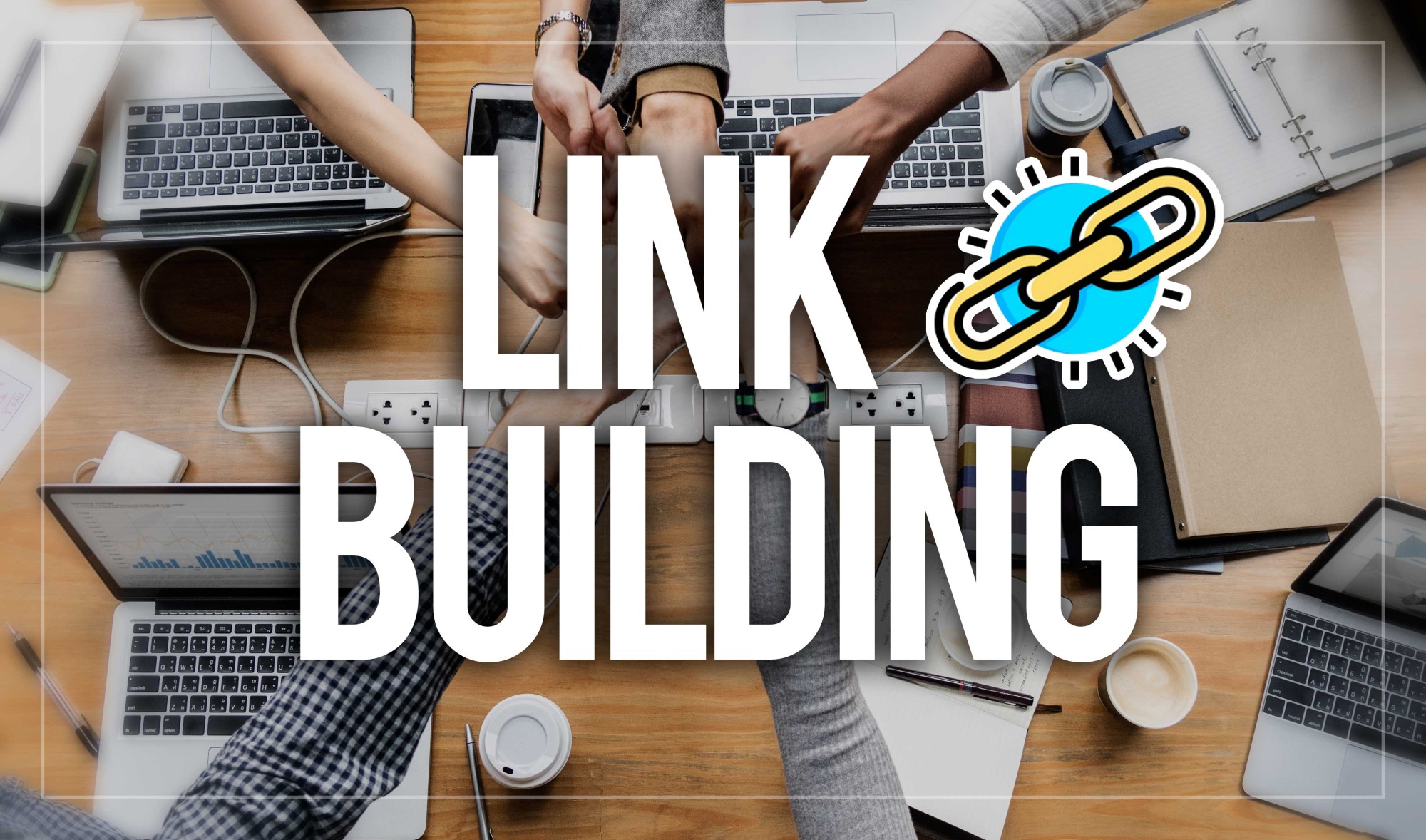Link building is one of the most important aspects of SEO, but it’s also one of the most difficult. About 41% of SEO experts acknowledge that it’s the most challenging part of creating an effective SEO strategy.
If you’re a business owner looking to increase your online visibility, you’ve probably considered leveraging a link building strategy. The goal is to acquire links from other websites to yours, signalling to Google that your site is worth clinching the top spot.
But if you’re not careful, you can make link building mistakes that will hurt your ranking. Read on to learn 12 of the most common mistakes and how you can avoid them to get better results from your link building campaign.
1. Not Creating Link-Worthy Content
If you want people to link to your website pages, you need to give them a reason. The best way to do this is to create high-quality, original content.
You might be tempted to cut corners by creating low-quality content that takes less time. The truth is, no one will link to your website if your content is poor.
No one would want to associate with a website that’s not informative or doesn’t add value to readers. People will also avoid linking to your low-quality content because it may affect their website’s ranking.
You should always curate killer content that screams out to your audience. Your content link building will get you better results if you focus on creating detailed content that answers your audience’s questions.
Brainstorm topic ideas relevant to your industry and target keywords that you know people are searching for. Other people in your niche will feel comfortable linking to such content because they can benefit from it.
You should also create a mix of different types of content that will help you get links from different types of websites. Examples include infographics, blog posts, ebooks, and white papers.
2. Buying Links
In the past, businesses could buy links to increase their website’s ranking. But this is no longer the case.
Google has caught on to this black-hat SEO tactic and now punishes websites that use it. If you engage in link buying, you could see your website’s ranking drop significantly.
What’s more, Google could blacklist your website altogether. As a result, your website would no longer appear in search results, no matter what people searched for.
To avoid this mistake, you should never buy links. If you feel tempted to do so, remember that it’s not worth the risk. There are other, more effective ways to build links to your website.
3. Linking Everything to Your Homepage
You’re likely to create links that point only to your homepage. This is a link building mistake because it’ll look odd when your homepage has a lot of traffic while other pages get none.
Search engines may penalise you due to an imbalanced backlink ratio across your pages. Google might even think you’re buying backlinks or engaging in black hat SEO. Linking to your homepage signals to Google that you think your website is the best.
The best way to avoid this mistake is to link to website pages that contain different content from your website. This will be a sensible strategy as long as the sites contain content that might interest your audience. You should include links to website pages that you want to rank for.
4. Over-Optimising Anchor Texts
Anchor texts are clickable words that are hyperlinked to another page. When building links, you might make the mistake of over-optimising their anchor texts. Over-optimising means using the same keyword or phrase too many times.
For example, if you’re trying to rank for the keyword “dog food,” you might use this as your anchor text every time you build a link. This looks unnatural and can hurt your website’s ranking. Google may think you’re trying to manipulate your way to the top.
You should avoid this mistake by using a variety of anchor texts. Use different combinations of keywords and phrases that are relevant to your page. You should also make sure that your anchor texts sound natural.
5. Failing to Monitor Link Building Progress
You might make the mistake of failing to monitor your link building progress. It’s essential to track your progress to see what’s working and what isn’t.
If you don’t track your progress, you won’t be able to tell which link building strategies are effective and which ones aren’t. As a result, you might waste time and effort on tactics that don’t work.
You can avoid this mistake by tracking the metrics relevant to your link-building efforts. For example, you can focus on your link building ROI to see if you’re getting a good return on your investment.
You can also track the number of links you’re building over time. Here, you should focus on different types of links, including inbound links. This will give you an idea of your progress and whether your strategies are working.
You’ll track your link-building progress better if you work with an experienced SEO company. Through its transparent reporting, Snap SEO will help you track the success of your link building strategy in Edmonton, Canada.
This results-driven Edmonton SEO agency will offer you the best link building services like blogger outreach to ensure you get your desired results.
6. Link Spamming
Link spamming is a black hat SEO tactic where businesses post their links on other websites without permission. This is often done in the comments section of blog posts, articles, or other online venues that allow users to leave comments.
Search engines consider link spamming a malicious activity because you do it intending to harm the website that you’re linking to. Google will penalise your website if it catches your link spamming. It may even remove your website from its indexing.
Fortunately, it’s easy to avoid this mistake. You should never post links on other websites without permission. If you want to leave a comment that includes a link to your website, make sure that the comment adds value.
7. Linking to Broken Links
When you’re building links to your website, you might accidentally create broken links. A broken link is a link that leads to a page that doesn’t exist. This mistake often happens when you misspell a URL or link to a page you’ve already taken down.
Broken links are problematic because they can frustrate users. If someone clicks on a link and it doesn’t work, they’re likely to leave your website and never return.
To avoid this mistake, you should regularly check your links to ensure they’re working. You can use a tool like Broken Link Checker to help you find and fix broken links on your website.
8. Getting Links From Low-Quality Websites
When building links, you might make the mistake of getting links from low-quality websites. A low-quality website has features like poor design. The website also doesn’t have much content and is full of grammatical and spelling mistakes.
Getting links from low-quality websites can harm your website’s reputation. Google may view your website as being associated with low-quality websites and penalise your website.
To avoid this mistake, you should only get links from high-quality websites. Focus on building relationships with websites relevant to your industry and that have a good reputation. You can reach out to people who own or run popular news sites, industry-leading blogs, and well-respected authority websites.
You can start by engaging with them on social media. You can also comment on their blog posts and articles. Another way to build relationships is to attend conferences and meetups relevant to your industry.
When you build relationships with people, they’ll be more likely to link to your website. They may also be willing to give you a guest post opportunity or mention your website in an article.
9. Backlink Sprints
A backlink sprint is a link building tactic where you try to get as many links as possible in a short period of time. You can do this by hiring someone to build links for you.
Backlink sprints can be harmful to your website because they can result in low-quality links. Google may view your website as being involved in a link scheme if it finds that you have a lot of low-quality links.
The best way to avoid this mistake is to have the patience to build links slowly and steadily over time. Focus on spreading out your links by having different websites link to your site’s content. You should also ensure that you have varied content to which other websites can link.
Always remember that link-building is a slow process. You must be willing to put in the work and be patient. Commit to white hat link building practices such as creating high-quality content and building relationships with other website owners.
10. Not Spying on Your Competitors’ Link Building Strategy
You might not think that you need to know what your competitors are doing. But when it comes to link building, it’s essential to keep an eye on your competition. This is because your competitors are likely trying to build links to their websites as well.
You should try to find out where your competitors are getting backlinks from. You can use a tool like Monitor Backlinks to do this.
You can also use Ahrefs to see the links pointing to your competitors’ websites. Once you know where they’re getting links from, you can try to get links from the same places.
You should also find out what types of content your competitors are creating that’s getting them links. You can then create similar types of content to try to get links to your own website.
At Snap SEO, we understand that your small business or startup in Edmonton might have challenges keeping up with your competitors’ link building strategy. This is why we have a managed SEO strategy that focuses on competitive gap analysis.
We’ll help you research what your competitors are ranking for and use low-competition keywords to ensure you rank better than them.
11. Failure to Diversify Your Link Building Practices
When you’re building links to your website, you might make the mistake of using the same method over and over again. For example, if you’re only ever getting links from guest posts, then you’re not diversifying your link building practices.
You should try different types of link building practices to diversify your link profile. Some types of links that you can get include:
- Guest posts
- Resource pages
- Infographics
- Broken link building
- Link roundups
- Interviews
Diversifying your link building practices will help you get links from different types of websites. This will make your link profile look more natural to Google and may help you avoid a penalty.
Avoid Link Building Mistakes to Boost Your Digital Marketing
In an era where the world is going digital, you have to make sure that your website is visible to potential customers.
Link building is an SEO strategy that will help you achieve such visibility. However, you must avoid the above link building mistakes to ensure Google doesn’t penalise your website.
If you need help with your link building strategy, look no further than Snap SEO. We’re an SEO marketing company in Edmonton, AB, and we’re committed to helping your business grow through different SEO techniques.
Contact us today, and we’ll be glad to help you.





